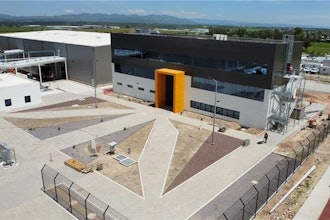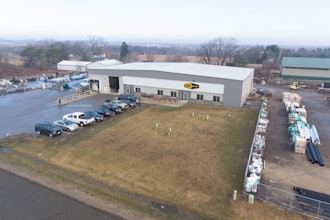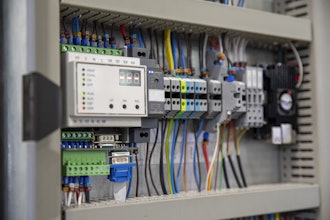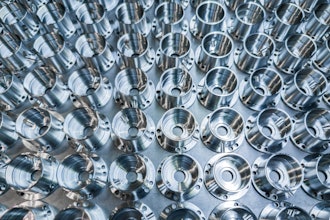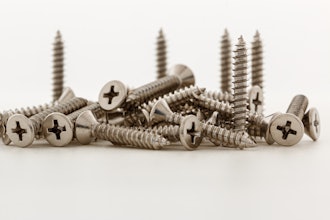According to the November 2010 Manufacturing ISM Report On Business, economic activity in the manufacturing sector expanded for the 16th consecutive month, and the overall economy grew for the 19th straight month.
The PMI (Purchasing Managers’ Index), an indicator of the economic health in the manufacturing sector, registered at 56.6 percent, a decrease of 0.3 percentage point when compared with October’s reading of 56.9 percent. However, November’s rate of growth marked the second fastest in the past sixth months. A reading above 50 percent indicates that the manufacturing economy is generally expanding; below 50 percent indicates that it is generally contracting.
Norbert Ore, CPSM, C.P.M., chair of the ISM Manufacturing Business Survey Committee, recently spoke with Industrial Distribution about the data in the report, what the data means to those in the manufacturing industry, and whether or not manufacturers can feel confident about the future health of the sector, as well as the economy as a whole.
ID: What are some of your initial thoughts regarding the report?
Ore: November was another good month for the manufacturing sector. This is the 16th consecutive month of growth that we’ve seen, and during the last six months the index has averaged above 55, which is quite strong in terms of month-over-month growth. We’re finishing up the year on a strong note with the November report coming in at 56.6.
In my mind, the big issue in the economy right now as far as manufacturing is concerned…those industries that are closely aligned in the tech sector and those that are closely aligned with automotive are doing fairly well right now. Those that are aligned with housing are still struggling. When we say manufacturing overall is doing well, it’s really unfair to those that are related to the housing industry, because they’re not.
And what’s probably more remarkable is that we have this kind of recovery in autos and tech, because if housing was anything close to what it typically has been, these numbers would be very, very good. The overall economy would be benefitting greatly from the growth we’d be seeing in manufacturing, because we would be up in the 7 and 8-percent growth rate for the sector.
ID: What do you feel are some of the major contributors to the growth of some of these manufacturing industries that are closely aligned with the automotive and tech sector?
Ore: The easy answer for this is that the manufacturing sector has completed the process that it goes through in terms of trimming the size of the sector down when it has reduced demand. What we’re seeing here for those segments is a typical business-cycle recovery. By that I mean manufacturing has learned that when demand diminishes, you cut inventories, you reduce employment, you reduce investment, you rationalize non-productive facilities, and you kind of start all over again and build from there, which is what we’ve done for 16 months.
The problem is that the tech sector and automotive (sector) were successful at that, while housing did the same thing, but the problem is that there’s no demand. Having streamlined and having become much more productive at everything else doesn’t accomplish a whole lot if you don’t have any demand to help drive that.
ID: Do you feel, for the most part, that manufacturers can feel confident in their economic positions right now and for the near future?
Ore: We’ve just finished 2010 with it being a very good year. The PMI for the last 12 months has averaged 57.1, which indicates strong month-over-month growth throughout the year. Manufacturing has gone through that typical business-recovery cycle, where it is really focused on productivity. I think we’re carrying a lot of momentum into next year. It would look like we’ll start to see a little break in employment. Some of the data…looks fairly encouraging.
I think, barring any other truly disappointing financial news out of either housing, or sovereign debt, I think manufacturing will continue to hold its own. I don’t think it will do it at quite this level. We’re now 16 months into the cycle, but it’ll still continue to grow.
ID: Are there any other potential pitfalls or stumbling blocks that could hold manufacturing back in the future?
Ore: The consumer is ultimately the key. It looks like business investment for 2011 will be reasonably good.
ID: We’ve had this somewhat lengthy period of slow, but steady growth. Is there any factors that would allow for the acceleration of growth in the manufacturing sector in the coming weeks and months?
Ore: As far as growth in the manufacturing sector, I don’t think there’s much in the way of circumstances we could look at that would accelerate growth, because the growth has been so solid. Were we in a better position financially as a country, then we might be able to talk about that. But there are too many inherent problems with our own public policies and federal finances to expedite any of that.
Norbert Ore, CPSM, C.P.M., is a supply chain consultant and a recognized supply management leader known for global strategy and technology implementations in Fortune 500 companies. In addition to his work with the ISM Manufacturing Business Survey Committee, Ore is a frequent speaker to both buyers and sellers on negotiations, outsourcing, services and contracts, and he has authored numerous articles on those subjects. For more information on the Institute for Supply Management, please visit www.ism.ws.








